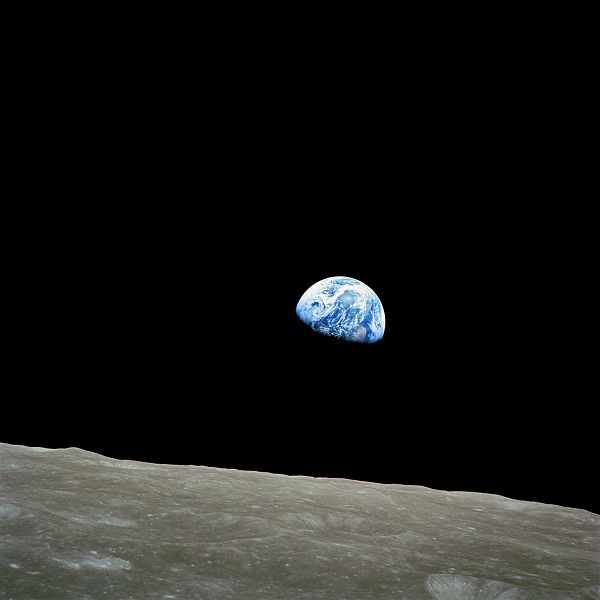
Two ways of looking at the cosmos:
A tiny planet floating amidst the vastness of an impersonal cosmos that truly does not care. Nobel laureate Steven Weinberg: “The more the universe seems comprehensible, the more it also seems pointless.” Still, he thinks, science can bestow upon us a fleeting and ultimately meaningless dignity in the face of utter cosmic nihilism. “The effort to understand the universe is one of the very few things that lifts human life a little above the level of farce, and gives it some of the grace of tragedy.”[1] Quite different from French philosopher Henri Bergson’s remark that “the universe is a machine for the making of gods.”[2] In Weinberg’s opinion, the universe is a machine, yes, but it was constructed for nothing by nobody.
In a 1995 address entitled “Physics and the Mind of God,” Anglo-Australian physicist Paul Davies notes the strikingly lawful nature of the universe, which “permits complex order to emerge from chaos, life to emerge from inanimate matter, and consciousness to emerge from life.”[3]
[1] Cited in John Polkinghorne, “Eschatology: Some Questions and Some Insights from Science,” in The End of the World and the Ends of God, ed. John Polkinghorne and Michael Welker (Harrisburg, PA: Trinity Press International, 2000), 32. [See original.]
[2] Find specific source.
[3] Paul Davies, “Physics and the Mind of God,” First Things 55 (1995): 34.
Close observers of the skies have long noticed their remarkable orderliness and harmony, which led, eventually, to the notion of the “music of the spheres,” which is well expressed by Lorenzo’s words to Jessica, in Shakespeare’s The Merchant of Venice:
Look how the floor of heaven
Is thick inlaid with patines of bright gold:
There’s not the smallest orb which thou behold’st
But in his motion like an angel sings,
Still quiring to the young-eyed cherubins;
Such harmony is in immortal souls;
But whilst this muddy vesture of decay
Doth grossly close it in, we cannot hear it.[1]
As Pierre Lecomte du Noüy remarked more than half a century ago, “paralyzing skepticism and destructive materialism . . . are by no means the inevitable consequences of the scientific interpretation of nature, as we have been led to believe.”[2]
And that is perhaps more obvious now that it has been at any time in the past one hundred and fifty years.
[1] Shakespeare, The Merchant of Venice, V.i.58-65.
[2] Lecomte du Noüy, Human Destiny (Longmans, Green and Company, 1947), xv.
***
Changing focus just a bit . . .
It sounds like an idea for a really gripping horror movie:
“The Hunt for the Brain-Eating Amoebas of Yellowstone”
But perhaps you prefer science fiction?
“A tech-destroying solar flare could hit Earth within 100 years”
When I was a little kid, I was a rabid Godzilla fan. So, when Godzilla met King Kong or Rodan, I was so very there for it. But would I want to be on the scene for this?
I found myself thinking, as I read the article above, about the old junior high school conundrum of what would happen if the irresistible force were to meet the immoveable object. (My answer: The indescribable event.)
More seriously, though, I found myself thinking about the cataclysmic events narrated in 3 Nephi.










